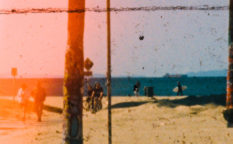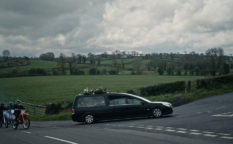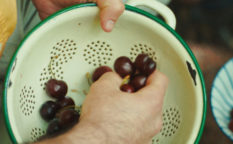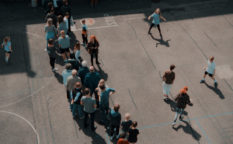Review: Unusual Summer (2020)
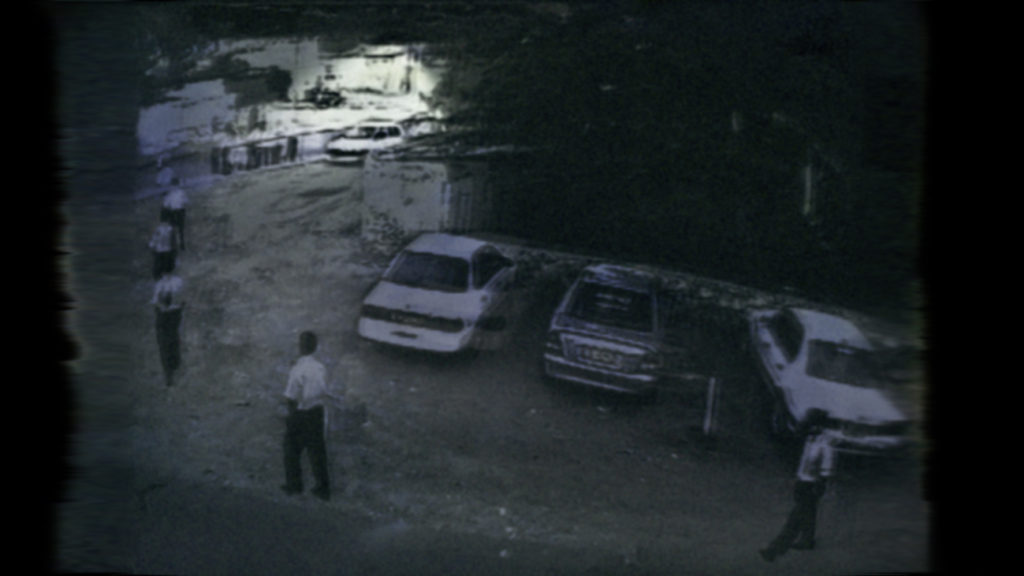
“Life must be disrupted in order to be revealed”, reads one of the texts that punctuate Kamal Aljafari’s Unusual Summer. Alternatively, it could have read “memory must be disrupted in order to reveal the constant disruption of life; so constant that it becomes unnoticed”.
The new feature by the Palestinian (Berlin-based, Israeli-citizen) filmmaker, that had its world première in (the online) Visions du Réel’s Burning Lights International Competition, again manipulates preexisting images of a place of belonging, like in Recollection. But unlike his more abstract though also more dynamic film of 2015, composed from mostly Israeli fictions and their representation of the city of Jaffa, in this case the material is much more intimate –yet of an essentially impersonal nature– and concretely linked to the notion of home.
Space and dwelling are once more at the heart of his work through a simple and fascinating device: revisiting old surveillance videos. The story behind the forgotten material is revealed right away: in July 2006, his father set up the security camera pointed at the family cars parked in front of the house, hoping to discover who had been repeatedly breaking the window of one of them. When over a decade later Aljafari found the tapes, that no one had cared to look at, his father had already passed away.
The artist intervenes the footage not only through the editing, that dismisses chronology, but also by direct manipulation, reframing, zooming, superimposing, rewinding, fast-forwarding or moving over the image, without adding any visual material other than intertitles. In consequence, An Unusual Summer can be considered to be shot entirely from the subjective point of view of its main character: the family house, which only reveals itself through its shadow, occasionally projected into the frame.
The witty and usually sarcastic intertitles alternate reflections (to set the tone from the start: “How should I know where I’m going?” – “Not everything has a purpose”) with information, introducing and describing other characters such the author’s relatives and neighbours… including a fig tree…
The sound design is more complex, with foley recorded by the filmmaker, and five other people involved in the post-production. Apart from a few songs, the most explicit commentaries come from Aljafari’s young niece, who occasionally reacts to the images she sees –though sometimes her remarks do not correspond to the scene they are edited over, underlining the obvious asynchrony and connecting past to present.
The exercise is stimulating and provoking. The project had the potential to go much deeper and further in its reflections, yet chose not to. At the risk of frustrating or underwhelming the spectator, it prefers to offer minimal narrative and geopolitical evocation way until the final moments.
The abrupt shift in tone and style at the very end could even give the impression of a hesitation in how far to go in contextual and personal terms. The hitherto brief and static text that had steered the film turns much longer and narrative. Instead of intertitles, the prose rolls out in a way that somehow mirrors the ending of Recollection. A concentrated series of stories scroll over a low-fi quality background, as if they were part of the original surveillance camera material. They share intimate memories around the filmmaker’s childhood, the house, as well as his father and the family history, especially after the Nakba that landed them in the “ghetto” –as he explains that this Arab area of Remla is known. Suddenly the geopolitical aspect of the film becomes densely explicit about the underlying questions driving Aljafari’s audiovisual work, namely discrimination and the condition of being displaced even in one’s own land.
Original title: صيف غير عادي
Year: 2020
Runtime: 80’
Countries: Germany, Palestine
Language: Arabic
Directed by: Kamal Aljafari
Cinematography by: Abedeljalil Aljafari
Editing by: Kamal Aljafari and Saebom Kim
Sound recording by: Kamal Aljafari
Colourist: Yannig Willmann
Produced by: Kamal Aljafari
Production companies: Aljafari Films

